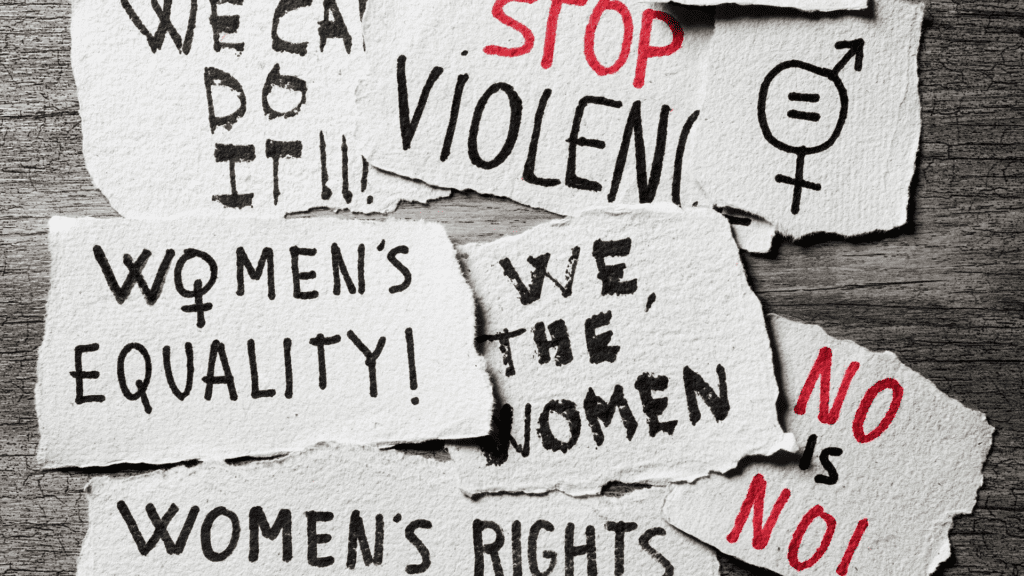A bathrobe-clad Harvey Weinstein raped starlets, or tried to, during meetings he’d arranged with them in his hotel room. He’s currently in prison. Paedophile Jeffrey Epstein paid underage girls for massages at his palatial Palm Beach estate—and then sexually abused them.
The gory details of that case are spelt out in Netflix documentary Jeffrey Epstein: Filthy Rich, guaranteed to attract an even larger audience given the recent arrest of Ghislaine Maxwell, Epstein’s long-time associate and, according to his accusers, the one who groomed many of them.
Given the deluge of #MeToo stories over the last few years, I’m no longer surprised at the predatory behaviour of powerful men. But if we take a broad historical perspective, what is actually shocking is that we, as a culture, broadly agree that there’s anything fundamentally wrong about male sexual entitlement.
We take for granted what we consider the touchstones of progressive politics: that the powerful should not prey on the weak, that men should not objectify women or sexually abuse them.

We also don’t realise how out of step these beliefs make us with the rest of, you know, history. Which is probably why you will laugh in horror when I tell you that Tom Holland, the author of Dominion: The making of the Western mind, in a recent interview claimed that “the #MeToo movement is a deeply Christian one.”
It’s a shocking claim but one the British popular historian—an agnostic, by the way—makes via the taken-for-granted sexual habits of Roman men of antiquity. Yes, truly.
Holland said that in ancient Rome, the penis was typically described in violent terms: “It stabs, it eviscerates, it’s a sword, it’s a dagger, it’s a spear, it jabs in.”
Who wants to be on the receiving end of that? But if you were a slave in a Roman household, Holland said, you could be under constant attack, and no one would interfere: “Your master has the absolute right to rape you when and how he likes, any way that he wants, any orifice. It doesn’t matter what sex you are, it doesn’t matter what age you are, he can do what he likes.”
Not all masters were predatory, of course, but power dynamics saturated Roman sex. And that accorded with the bigger picture of the classical world—just consider the gods of the pantheon. “Zeus, Apollo, Dionysus,” Holland writes in Dominion, “all had been habitual rapists.”
And yet, as Holland tells the tale, the Apostle Paul, who wrote huge slabs of the New Testament and is today seen by some as an incurable scold, emerges as an unlikely advocate for women. In his letter to the church at Ephesus in modern-day Turkey, for instance, Paul encourages husbands to love their wives “just as Christ loved the church and gave himself up for her” (Eph 5:25).
Holland admits this sounds rather sexist today, but it’s absolutely radical for the time. By linking the wife with the church and the husband with Jesus, Paul provided an alternative model of male power: one focused on love and service, not force and domination. Paul goes even further: the husband, he said, belonged as much to his wife as she did to him. In other words, Paul insisted equally on female dignity and male sexual self-control, which was extraordinary according to the standards of his day.
Paul provided an alternative model of male power: one focused on love and service, not force and domination.
And this is the reason Holland claims that #MeToo has Christian roots. “The human body was not an object, not a commodity to be used by the rich and powerful as and when they pleased,” he writes.
“Two thousand years of Christian sexual morality had resulted in men as well as women widely taking this for granted. Had it not, then #MeToo would have had no force.”
Of course, it would be easier to believe that Christianity incubated some of our most cherished ideas of human dignity—had Christians not occasionally proven themselves the worst hypocrites ever on that count.
But as Holland points out, any critique of Christian behaviour itself relies on Christian standards. Ancient Romans wouldn’t have blinked twice at Weinstein and Epstein, sex offenders channelling their inner Olympian god. The fact that we take issue with any of this today, Holland argues, is because we live downstream of the Apostle Paul and his accidental sexual revolution.
Once you’ve recovered from that claim, brace yourself for the last bombshell Holland drops at the end of Dominion: Without Christianity, he writes, “no one would ever have got woke.”
Justine Toh is Senior Fellow at the Centre for Public Christianity, host of the occasional series Spiritual Lifehack on ABC RN’s Soul Search and, very occasionally, guest host of ABC RN’s God Forbid.
This article first appeared in The Spectator Australia.